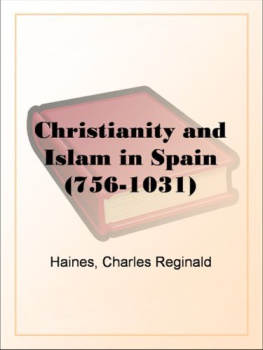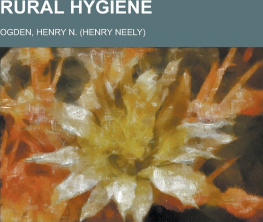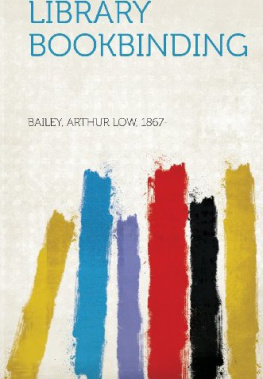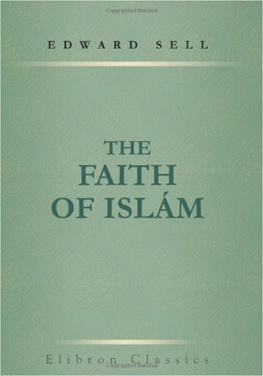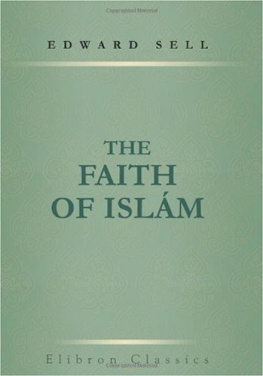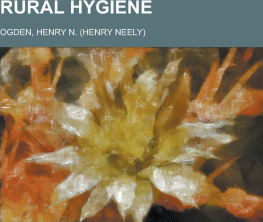The Project Gutenberg EBook of Pan-Islam, by George Wyman Bury
This eBook is for the use of anyone anywhere at no cost and with
almost no restrictions whatsoever. You may copy it, give it away or
re-use it under the terms of the Project Gutenberg License included
with this eBook or online at www.gutenberg.net
Title: Pan-Islam
Author: George Wyman Bury
Release Date: October 20, 2008 [EBook #26981]
Language: English
*** START OF THIS PROJECT GUTENBERG EBOOK PAN-ISLAM ***
Produced by Tamise Totterdell and the Online Distributed
Proofreading Team at http://www.pgdp.net (This file was
produced from images generously made available by The
Internet Archive)
PAN-ISLAM

MACMILLAN AND CO., Limited
LONDON . BOMBAY . CALCUTTA . MADRAS
MELBOURNE
THE MACMILLAN COMPANY
NEW YORK . BOSTON . CHICAGO
DALLAS . SAN FRANCISCO
THE MACMILLAN CO. OF CANADA, Ltd .
TORONTO
PAN-ISLAM
BY
G. WYMAN BURY
Author of "The Land of Us," "Arabia Infelix."
MACMILLAN AND CO., LIMITED
ST. MARTIN'S STREET, LONDON
1919
TO
MY WIFE
PREFACE
I have written this book to present the main factors of a many-sided problempolitical, social and religiousin a form which the general public can easily grasp.
Modern democratic principles tend to give the public increasing control of international and inter-racial affairs, and therefore any contribution to public knowledge on such questions is in the interests of sound administration.
The book is not intended to advise those who actually handle these affairs: I give such advice, when required, in more detail and not through the medium of a published work.
"Pan-Islam" is an elementary handbook, not a text-bookstill less an exhaustive treatise, but the questions it discusses are real enough. My qualifications for writing it are based on a quarter of a century's experience of the subject in most parts of the Moslem world, and I have studied the question in areas which I have not actually visited through intercourse with pilgrims from those parts.
I have no axe to grind or infallible panacea to advocate; I merely lay the result of my researches before the public for its information, as failing health has warned me to "pass the ball when collared," and I would like to think that the land where most of my life's work has centred will not be mishandled by cranks and opportunists after I have left the game.
An arm-chair is a sorry substitute for an Arab pony, and a garden plot for the highlands of Arabia Felix, but the human mind is not necessarily confined by such trammels, and if my environment is narrow I hope my book is not.
G. Wyman Bury .
Helouan, 27th July, 1919.
CONTENTS
PAGE
CHAPTER I
ITS ORIGIN AND MEANING
CHAPTER II
ITS BEARING ON THE WAR
CHAPTER III
ITS STRENGTH AND WEAKNESS
CHAPTER IV
MOSLEM AND MISSIONARY
CHAPTER V
A PLEA FOR TOLERANCE
PAN-ISLAM
CHAPTER I
ITS ORIGIN AND MEANING
Much has been written about Christianity and Islam, so I hasten to inform my readers that this is not a religious treatise, nor do I class them with the globe-trotter who searched Benares brass-bazar diligently for "a really nice image of Allah" and pronounced the dread name of Hindustan's avenging goddess like an effervescing drink.
I presuppose that Christians or Moslems who read this book have got beyond the stage of calling each other pagans or kafirs, and it will have served its purpose if it brings about a friendlier feeling between the two great militant creeds whose adherents have confronted together many a stricken field.
Most people have heard of the pan-Islamic movement, especially during the War. Some of us have called it a political bogey and some a world-menace, but these are extremist viewsit is really the practical protest of Moslems against the exploitation of their spiritual and material resources by outsiders.
Pan-Islam (as its name implies) is a movement to weld together Moslems throughout the world regardless of nationality. The ethics and ideals of Islam are more attainable to ordinary human beings than those of Christianity: whether it is better to aim high and score a partial success or aim lower and achieve is a matter of personal opinion and need not be discussed here, but one tangible fact stands outthat Islam, with its easier moral standard and frequent physical discipline of attitudes and observances connected with obligatory prayer, enters far more into the daily life of its adherents than Christianity does with us. Hence pan-Islam is more than a spiritual movement: it is a practical, working proposition which has to be reckoned with when dealing with Moslems even in secular matters.
Pan-Islam is no new thingit is as old as the Hejira, and then helped to knit together Moslem Arabs against their pagan compatriots who were persecuting them. In the palmy days of the Abbaside Caliphate it was quiescent enough, and men of all creeds were welcomed at Baghdad for their art, learning, or handicraft when we were massacring Jews in London as part of a coronation pageant.
Medieval Moslems never fanned the movement into flame as long as they were let alone, and even now tribes living beyond the scope of missionaries and traders prefer the Christian traveller whom they know to the Moslem stranger from the coast whom they usually distrust, and who, to do him justice, seldom ventures among them, unless compelled by paramount self-interest, generally in connection with some European scheme or other.
Hitherto pan-Islam had been an instinctive and entirely natural riposte to the menace or actual aggression of non-Moslems; it assumed the character of a definite organisation under the crafty touch of that wily diplomat Abdul Hamid, once called by harsh critics "the Damned," though his efforts in that direction have been quite eclipsed by more recent exponents.
In extreme evangelical circles it used to be frequently urged that pan-Islam was a bugbear discovered, if not created, by one of India's most eminent Viceroys, whose remarks thereon are said to have given Abdul Hamid the hint. This method of eliminating a danger by denying its existence has been discredited, since 1914, as completely as the somewhat similar one (attributed to Mississippi engineers) of sitting on the safety-valve just too long for safety. Moreover, in view of Abdul's undoubted ability, he probably discovered for himself its efficacy as a weapon of reprisal when hard pressed by pertinacious and inquisitive Ambassadors, for he often found himself much embarrassed in his dealings with Armenia and other domestic affairs by the intrusions of the more formidable Christian Powers.
Great Britain naturally felt the point of this weapon most as governing wide Moslem territories, and one can imagine some such interview as this:
"Frontier rectifications, my dear Sir Nicholas? By all meansand, talking about frontiers, I do hope affairs are quite quiet now on your north-west frontier; I take such an interest in my East Indian correspondence."
And those Britons who have handled Oriental affairs for the last twenty years can appreciate the extent of that interest when we remember that even while Yamen Arabs were fighting the Turks, their neighbours on the Aden side of the frontier were praying in their mosques that the Sultan and his troops might be victorious "by land and sea."
All this, however, was merely playing with intrigue as a political counterpoise; it remained for a Christian nation to put pan-Islam on a business footing. First we have polite bagmen calling at Stamboul with German guns and a German military system. Then "our Mr. William" of the well-known Potsdam firm of Hohenzollern and Sons made his great advertising campaign in the Near East; many of us remembered his theatrical visit to Saladin's tomb and the tawdry wreath with its bombastic inscription, "From the Emperor of the Franks to the Emperor of the SaracensGreeting."

![G. Wyman (george Wyman) Bury Pan-Islam [Microform]](/uploads/posts/book/60938/thumbs/g-wyman-george-wyman-bury-pan-islam-microform.jpg)

